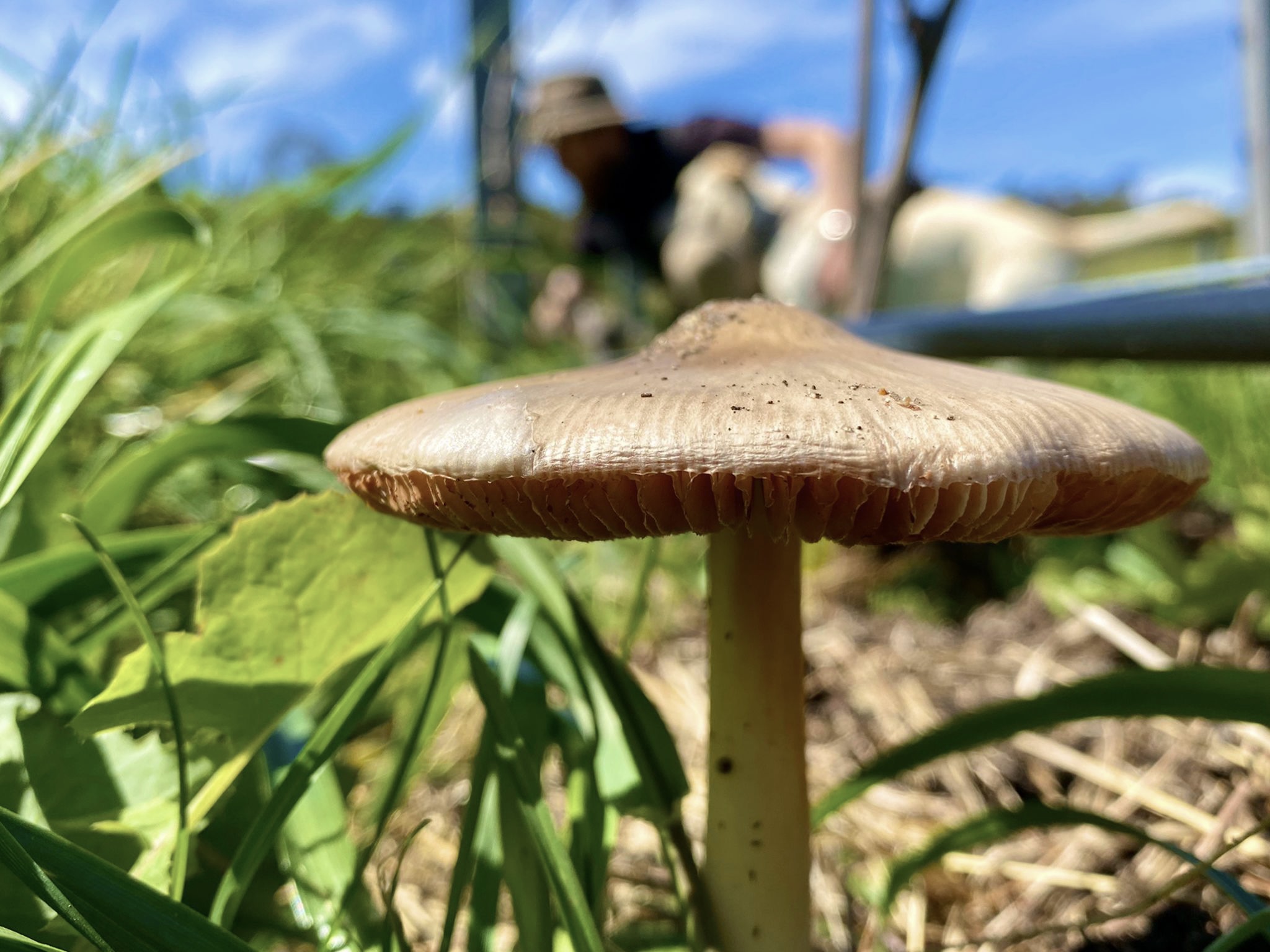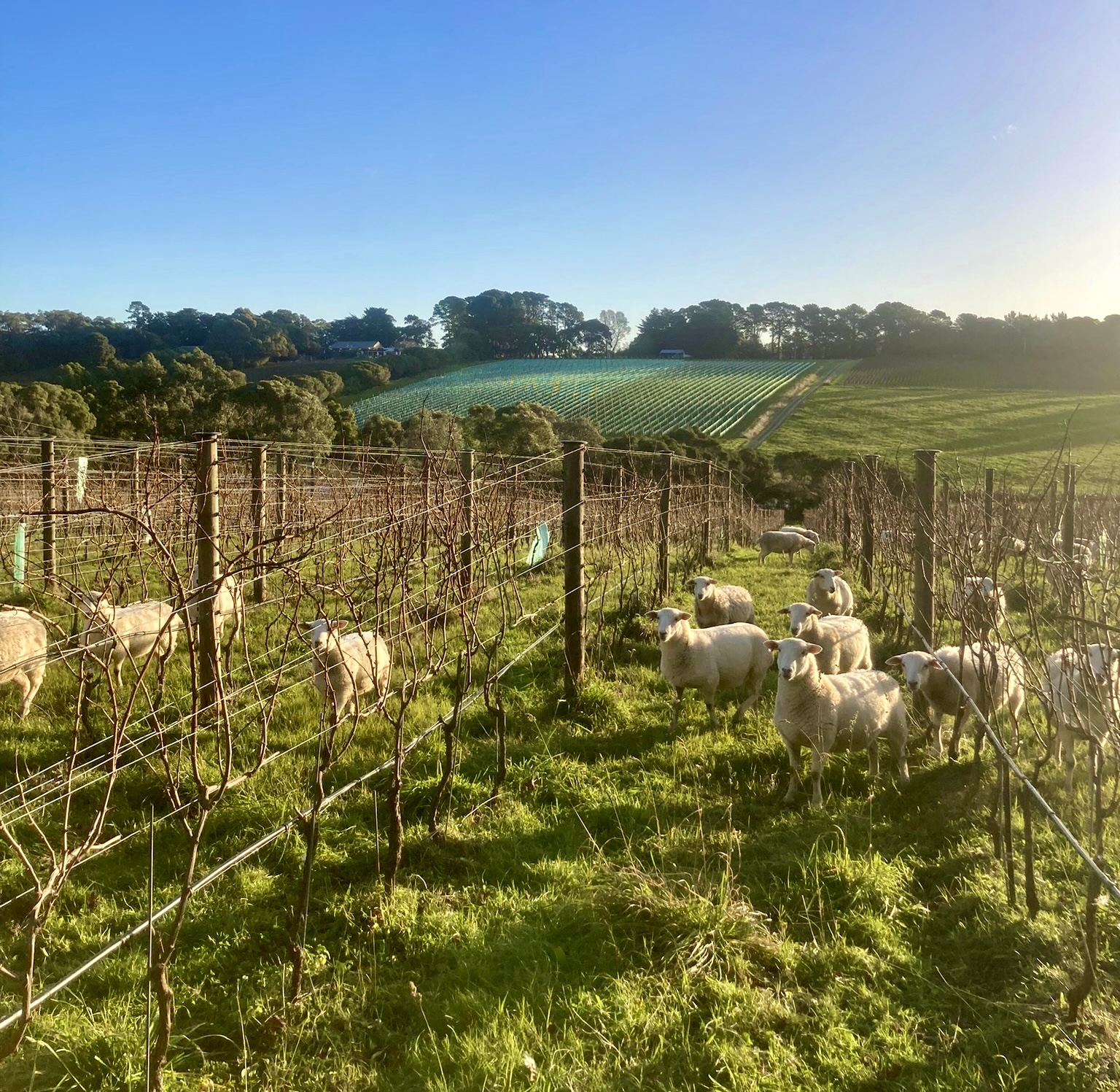Regenerative Agriculture
No Synthetics
Portsea Estate is committed to organic practices and regenerative farming across our vineyards, olive grove, bee sanctuary and native tree nursery.
We believe in minimal intervention and only use natural, organic products where needed. Synthetic fertilisers destroy the mycorrhizal fungal networks and nitrogen fixing microbial ecosystems that are naturally present in healthy soil so we focus instead on enabling and enhancing nature's built in nutrient providing systems.
We do not use systemic herbicides.
 Increasing evidence of fruiting fungal networks in our Portsea vineyards.
Increasing evidence of fruiting fungal networks in our Portsea vineyards.
 Vineyard sheep mowing the grass and fertilising the soils in our Main Ridge chardonnay block.
Vineyard sheep mowing the grass and fertilising the soils in our Main Ridge chardonnay block.
Ground Cover and Vineyard Sheep
Maintaining plant growth in soil and avoiding bare earth is one of our top priorities. Plant roots hold soil together, protecting nutrient rich topsoil from eroding. The roots also exude sugars into the soil, providing food for beneficial microbes and fungi which provide plants with essential minerals.
A common way to organically manage under-vine weeds is by cultivation or tilling the ground, but we believe this causes erosion and disrupts subterranean fungal and bacterial networks. At Portsea Estate we hand trim the under-vine with a line trimmer and use local sheep to keep the grass and weeds in check (they are also natural fertilisers of the soil).
Long Grass and Cover Crops
When plants grow, their roots grow deeper. We allow native grasses and cover crops to grow long and high in between the rows of vines so that their roots grow deeper into the soils. Once grass is cut, crimped, or nibbled by a sheep, a portion of long roots will drop off to maintain vertical symmetry of plant root and leaf height. Broken off roots provide a 'pulse' of minerals, especially carbon, deep within the soil. Longer grass allows for more photosynthesis and carbohydrate rich exudates, providing more food for microbial life.
We planted rye grass and legumes in between our vine rows to enhance the structure and water holding capacity of the soil. This also helps to replace synthetic fertilisers through natural systems that provide nutrients. For example, legumes are integral in the natural 'nitrogen fixing' process. In other words, more legumes equal more soil nitrogen.

Pea flowers blossoming in our Portsea MV6 vineyard inter-row.
Winemaker and Vineyard Manager, Matt Lugg, inspecting chardonnay vines post distribution of compost.
Community Based Compost Project
Compost is a natural and rich source of nutrients which has yielded excellent results when applied to our vineyards. Consequently, we are working in partnership with several local businesses to collect their food scraps, helping to recycle their waste output as well as increasing our compost reserves. These food scraps are composted on our property and later distributed amongst the vines.